‘Many people are mourning,’ said Sam West on a BBC panel show discussing the response of the arts world to Brexit. According to West’s figures, ‘96 per cent of those polled were for Remain. Collaboration and connection are our bread and butter.’ The atmosphere of bitterness and anger was palpable at the Edinburgh Festival.
I spent four days immersed in comedy shows and I heard only one pro-Brexit gag. The excellent Geoff Norcott said he was puzzled to meet Remainers who told him the result had been swung by ‘thick’ Leave voters. ‘Thick?’ he said. ‘The Remain campaign waited until after 23 June to stage their street protest.’
Every other comedian regretted the experiment. A Swede called it ‘madness’. An American said ‘Brexit’ and mimed blowing his brains out. Andy Zaltzman, an admirable satirist in many ways, teased his fans by telling them he’d voted Leave because Brexit would be better for business. And he delivered one of the best lines of the fringe: ‘Jeremy Corbyn campaigned for Remain with all the ferocity of a cornered blancmange.’ He asked the crowd who was ‘to blame’ (not ‘to thank’ of course) for the result, and he drew some revealing views. Cameron, Boris and Gove all got a name-check. But no one gave the correct answer: democracy. One disgruntled Remainer said it was the fault of ‘the British people. They can’t be trusted.’ I saw a depressed public-school comedian, whose name I needn’t reveal, capture the pleb-hating mood with unwitting eloquence. His life, he told us, had been a severe ordeal. Having been forced to endure a boarding-school education, he’d been saddled with a university degree in maths. He was now pursuing an unhappy career as a private tutor while living in the poverty-stricken township of Ladbroke Grove. These trials had, of course, driven him into the arms of the Corbyn fanatics. ‘I hate myself,’ he said, glumly summarising his tragic past. Then he canvassed the audience’s views on Brexit. ‘Who voted Remain?’ he said. Every hand but mine flew upwards. ‘And who’s a cunt?’ Then he reached into the back pocket of his hipster jeans and produced a miniature bike-horn which he squeezed twice — parp parp — to register his dismay. Parp parp. On a child’s toy. A perfect image of the tantrum-throwing Remain mentality.
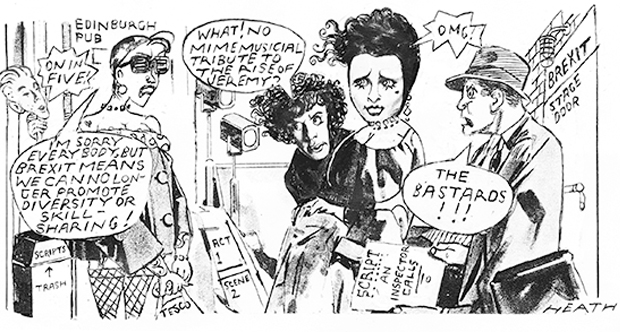
Entertainers who dabble in politics are easy to mock but anyone who has the talent to sway emotions is apt to believe that their skills are transferable to politics. The trouble starts when the instant statesman decides he needs no special training or professional advice. A film star wouldn’t dream of choosing a do-it-yourself facelift but he’s happy to assume he enjoys a perfect mastery of the political trade. And because he lacks a spin-doctor he never learns Rule One of the dark arts: how is he perceived by those he wishes to influence? Luvvies, poor things, are regarded as spoilt, frivolous, out of touch, greedy, vain, shallow, self-deluding, overpaid, obsessed with appearance and prepared to say anything that meets the needs of the hour. Anyone could tell you that. But the thesps who mounted the soapbox for Remain forgot to minimise these prejudices and instead set about highlighting them in garish yellow felt tip. Shortly before the poll a circle of actors, including Helena Bonham Carter and Benedict Cumberbatch, published an open letter warning that ‘our global creative success would be severely weakened by walking away’. It was a puzzling message, oddly phrased. ‘Global creative success’ has seldom been credited to the tax-hungry, regulation-heavy EU, which tends to stifle commercial originality wherever it emerges. The words ‘our global creative success’ are meaningful only if you and your chums happen to enjoy a worldwide fanbase that might be ‘severely weakened’ by some unexpected cultural shock. There aren’t too many residents of, say, Sunderland or the West Midlands who lose sleep over their ‘creative global success’. The letter sounded like a lot of film stars giving advice to a lot of other film stars.
Not long after the vote, Charlotte Church composed this statesmanlike post-Brexit tweet. ‘I want my fucking European Union back,’ she ordered, apparently unaware that the EU had not expired as a result of the referendum. But there’s happy news for the Cardiff warbler. What she calls ‘my fucking EU’ is full of tax-gobbling leaders like President Hollande who will gladly offer residency to a popular Welsh songstress with a vast income to deplete.
Luvvie anger is understandable given that Brexit is about to deprive us of access to the cash handed out to creative types favoured by the EU. Quitting the union means withdrawing from a little-known body, Creative Europe, which has astronomical sums to splurge around. Between 2014 and 2020 it intends to disburse a total of €1.46 billion to successful applicants. Its opaque funding system uses a weird jargon comprehensible only to Eurocrats and to those who batten off the fees dispensed by Brussels. To quote the website:
This funding strand offers support for European creative and cultural networks. These networks aim to support their members’ capacity to better operate trans-nationally, to build their capacity to work across Europe and adapt to change. Networks encourage linguistic and cultural diversity, strengthen competitiveness, and promote skill-sharing and good practice.
A ‘network’ must have a 15-strong membership, and at least five of these members should originate outside the EU. At first sight it’s unclear whether these ‘members’ are individual citizens or organisations. But once they coalesce into a ‘network’ they can apply for a ‘four-year framework partnership agreement’. If you dig a little deeper, you learn that ‘networks’ are not individuals at all but affiliations of creative professionals. A typical body is FOAM, an eco-group which describes itself as an ‘inter-disciplinary’ organisation consisting of ‘cultural labs intersecting art, science, nature and everyday life’. FOAM, in collaboration with other environmental quangos, occupies itself in the organisation of ‘gatherings, workshops and play-spaces’. Then there’s a group with the curious title ‘Life Long Burning’. It sounds like a society of pyromaniacs but it turns out to be a terpsichorean conglomerate devoted to the ‘sustainable support’ of contemporary dance and ‘the enlargement of its audience’. How this enlargement will be achieved is unclear. Perhaps with free ice cream.
One of the largest recipients of funding is NETA (New European Theatre Action), which claims that it ‘encourages skill sharing and good practice, and aims to develops [sic] theatre and culture at global level’.
Taking away their subsidies is exposing the true colours of the arts establishment. Sir David Hare, one of the luvvie lobby’s greatest potentates, offered these words to the Guardian in July: ‘Democrats have no duty to endorse democracy’s every outcome.’ Translation: it’s fine to ignore the majority from time to time and still call yourself a democrat. That kind of power-mad double-think led Richard Nixon to declare, ‘When the president does it, that means it’s not illegal.’ The tear-stricken Remain voters seem not to realise what dangerous materials they’re dabbling in. Once freedom-haters like Sir David outnumber the real democrats, our system is dead.
The post Out – and not proud appeared first on The Spectator.
Got something to add? Join the discussion and comment below.
Get 10 issues for just $10
Subscribe to The Spectator Australia today for the next 10 magazine issues, plus full online access, for just $10.
You might disagree with half of it, but you’ll enjoy reading all of it. Try your first month for free, then just $2 a week for the remainder of your first year.

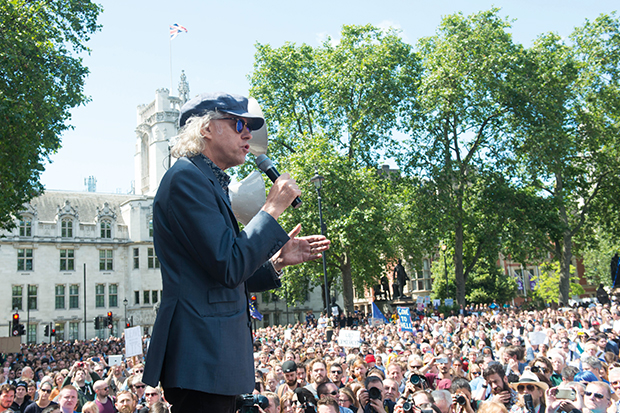
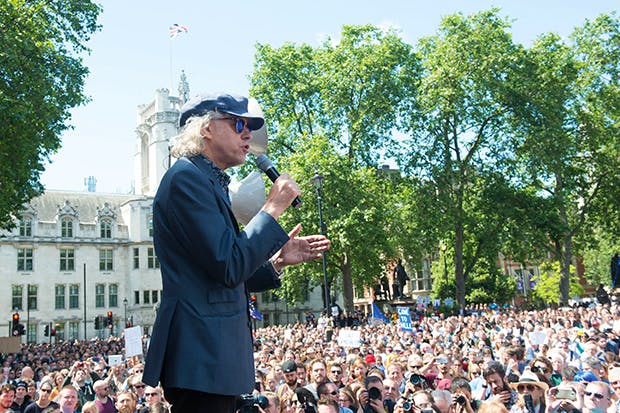


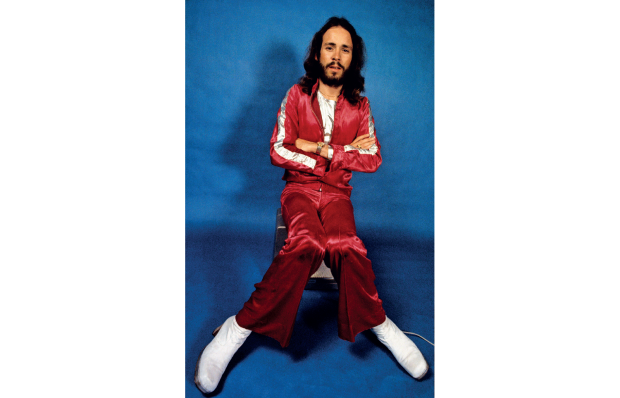
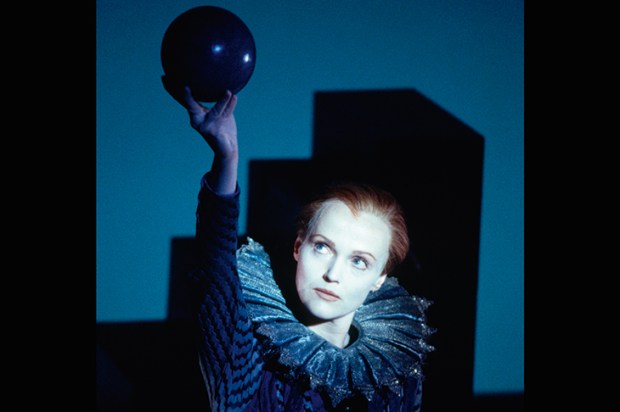
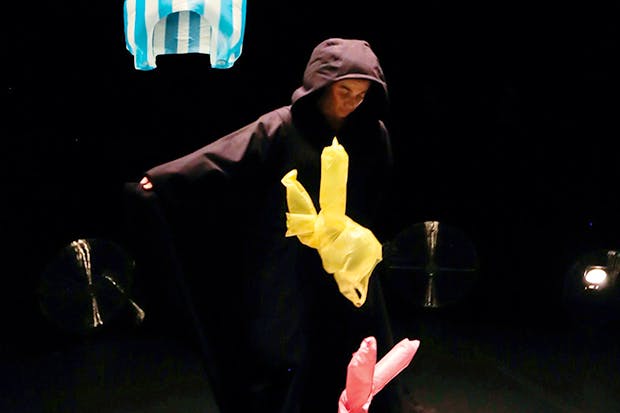






Comments
Don't miss out
Join the conversation with other Spectator Australia readers. Subscribe to leave a comment.
SUBSCRIBEAlready a subscriber? Log in